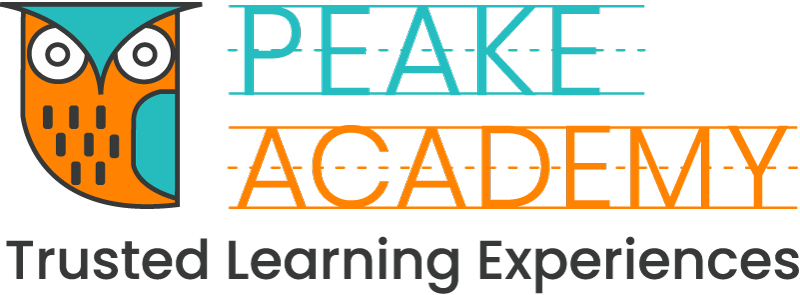Kindergarten Readiness: 7 Tips for Preparing Your Preschooler for a Successful Start
Starting kindergarten is a significant milestone for both children and parents. Transitioning from the home environment to the structured world of school requires thoughtful preparation. With the right strategies, you can help your preschooler adjust smoothly and confidently to kindergarten. Here are some helpful tips to ensure your child is ready for their big day.
1. Establish a Routine
Gradual Transition
Begin transitioning into a school routine a few weeks before the first day. Gradually adjust bedtimes and wake-up times to align with the school schedule. This helps your child acclimate to the new routine without a sudden change.
Consistent Schedule
Consistency is crucial for preschoolers. Establish a daily routine that includes regular meal times, playtime, and quiet time. A predictable schedule provides a sense of security and helps your child understand what to expect each day.
Practice School Activities
Incorporate school-like activities into your daily routine. Practice simple tasks such as getting dressed, packing a backpack, and tidying up toys. These activities help build independence and familiarize your child with the daily tasks they'll encounter at school.
2. Create a Positive Mindset
Talk About Kindergarten
Talk positively about kindergarten to build excitement and alleviate any fears. Share stories about your own school experiences and emphasize the fun aspects, like making new friends and learning new things. Answer any questions your child may have honestly and reassuringly.
Visit the School
If possible, visit the school with your child before the first day. Familiarize them with the classroom, playground, and other areas they will be using. Meeting the teacher and seeing the school environment can reduce anxiety and make the first day less intimidating.
Read Books About School
Reading books about going to school can help your child understand what to expect. Choose stories that depict positive school experiences and discuss the characters' feelings and experiences. This can open up conversations about any concerns your child may have.
3. Develop Social Skills
Arrange Playdates
Arrange playdates with other children who will be attending the same school. Building friendships before school starts can provide a sense of comfort and familiarity. It also helps your child practice social skills in a relaxed environment.
Role-Playing
Engage in role-playing games that mimic school scenarios. Pretend to be the teacher and have your child be the student, then switch roles. This can help your child become comfortable with the concept of being in a classroom and following instructions.
Encourage Sharing and Cooperation
Encourage activities that involve sharing and cooperation, such as group games and collaborative projects. These skills are essential for interacting with peers and participating in classroom activities.
4. Foster Independence
Self-Care Skills
Teach your child basic self-care skills such as washing hands, using the restroom independently, and dressing themselves. These skills boost confidence and reduce reliance on teachers for basic needs.
Simple Responsibilities
Assign simple responsibilities at home, like setting the table or feeding a pet. Taking on small tasks helps your child feel capable and responsible, which translates to confidence in a school setting.
Encourage Decision-Making
Allow your child to make choices, such as picking out their clothes or choosing a snack. Making decisions helps develop critical thinking skills and fosters a sense of independence.
5. Prepare Academically
Fun Learning Activities
Incorporate fun learning activities into your daily routine. Play educational games, do simple puzzles, and engage in activities that promote fine motor skills, such as drawing and cutting with scissors. These activities make learning enjoyable and prepare your child for the academic aspects of school.
Read Together
Make reading a daily habit. Read a variety of books and encourage your child to participate by asking questions and discussing the story. Reading together enhances vocabulary, comprehension, and a love for books.
Practice Basic Skills
Practice basic skills such as recognizing letters, numbers, shapes, and colors. Use everyday moments, like counting steps or identifying colors in the environment, to reinforce these concepts in a natural and engaging way.
6. Plan for the First Day
Pack the Night Before
Prepare everything the night before to reduce morning stress. Pack your child's backpack with necessary supplies, and lay out their clothes for the next day. This ensures a smooth and organized start to the first day of school.
Healthy Breakfast
A nutritious breakfast fuels your child's body and mind for the day ahead. Include a balance of protein, whole grains, and fruits to keep them energized and focused throughout the morning.
Positive Send-Off
Create a positive and calm atmosphere on the first day. Offer words of encouragement and keep the goodbye short and cheerful. A confident and upbeat send-off can set the tone for a successful day.
7. Stay Involved
Communicate with Teachers
Maintain open communication with your child's teacher. Attend orientation meetings, parent-teacher conferences, and stay informed about classroom activities. Understanding what's happening at school helps you support your child's learning and address any concerns promptly.
Volunteer
If possible, volunteer at school events or in the classroom. Being involved shows your child that you value their education and allows you to stay connected with their school experience.
Support Learning at Home
Reinforce what your child learns at school by incorporating similar activities at home. Discuss their day, help with any assignments, and provide additional resources for learning. Your involvement reinforces the importance of education and supports their academic growth.
Preparing your preschooler for kindergarten involves creating a routine, fostering a positive mindset, developing social skills, encouraging independence, preparing academically, planning for the first day, and staying involved. By taking these steps, you can help your child transition smoothly into the school environment, making it an enjoyable and enriching experience.
Free Resource
Thank you for reading this content. And if you loved this post, please be sure to join our Parent Advisor Facebook group where we share more insights and community.
Ensure your child is kindergarten-ready with our essential skills checklist and receive a FREE Kindergarten Prep Goals Checklist to track their progress.
Everyone deserves self-care
The same goes for busy moms like you. So let's do it together and create a healthy habit!
Join the 30-Day Happy Mom Challenge Today!
Visit our Parent Advisor and The Buzz Blogs to learn more about related topics and parenting tips. You are welcome to join our private Parent Advisor Facebook group. It’s a growing community of parents and preschool teachers where you can learn and share more parenting tips.
Related Blogs
Kindergarten, Here We Come! Prepare your Preschooler with these 10 Essential Skills
Kindergarten Countdown: Ensuring Your Child is Ready for the Big Leap
First Day, Big Smiles: Confidence-Boosting Tips to Set Your Child up for Success
How to Gauge Your Child's Readiness for Kindergarten: Essential Skills Checklist









